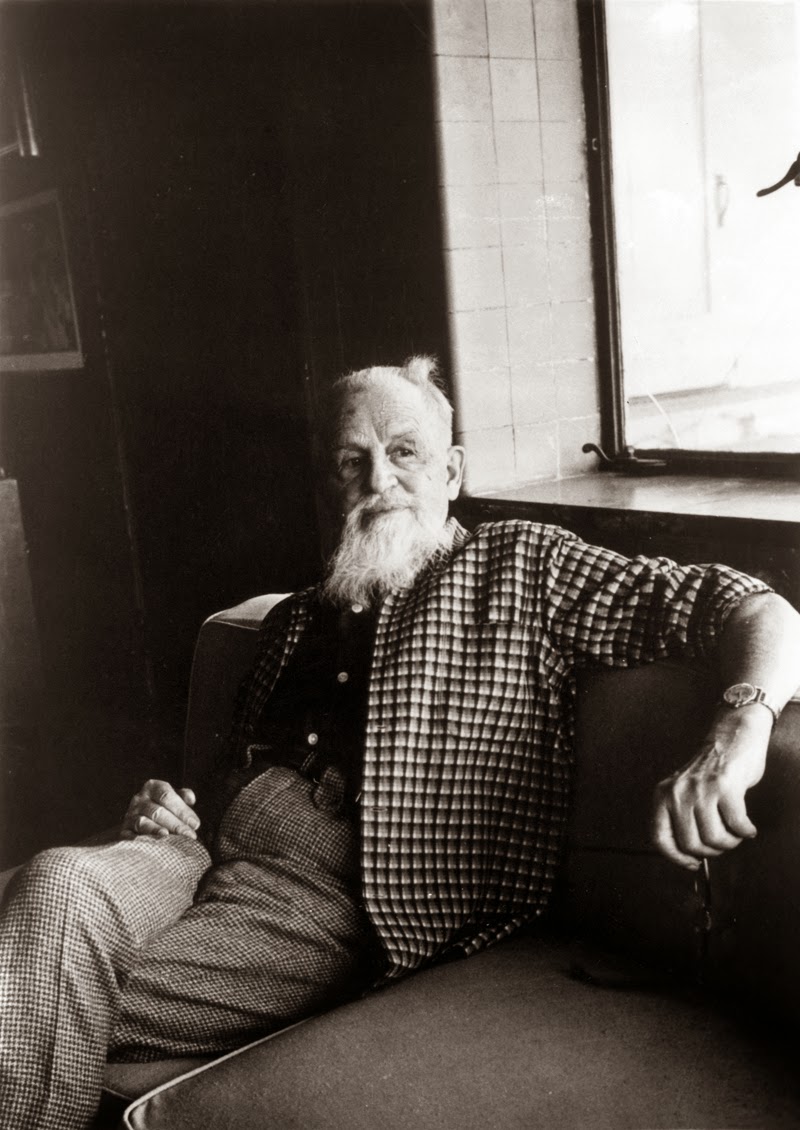 |
excerpt from that mighty fine blog The Passing Tramp
http://thepassingtramp.blogspot.com/2014/05/rex-stout-on-writing.html
About Rex Stout
By that time, Stout declares in his 1971 interview, he had realized "I was a storyteller and I was not a great writer" (I believe Stout means--ahem!--A Great Writer).
Those who
have what they see as higher artistic aspirations for the
mystery/crime tale (that it be Great Literature), will probably
find Stout disappointingly lacking in nobler aspiration here. I think
this is how Julian Symons felt when, in the 1950s, he suggested that Stout
should consider killing off Nero Wolfe. In Symons' view Stout, a talented
writer, had been coasting too long on his corpulent sleuth's tremendous
popularity.
In the
1971 interview Stout continues: "It seemed apparent to me [in
the 1930s] that writers of the first rank get themselves involved in
the difficulties of the people they write about. It was obvious in a
paragraph the way Dostoyevsky felt about Raskolnikov, or the way Tolstoy felt
about Natasha, and their feeling was of a degree that I wouldn't get."*
*(of
course some crime genre theorists have urged consideration of Dostoyevsky's Crime
and Punishment as a crime novel; Julian Symons once took this
position himself, but later came to believe, as he states in Bloody
Murder, that Dostoyevsky's works "far transcend anything the
crime novelist achieves or even aims at").
Stout
however urges that creating memorable characters "has nothing to do
with the level of literature." Tarzan and Scarlett O'Hara are great
characters, he says. He doesn't like the fiction of Bernard
Malamud, Philip Roth and John Updike, because
these authors are interested in problems, not people.
However,
he's unequivocally higher on Josephine Tey and Dashiell Hammett (a
coupling I think Julian Symons would have found rather odd):
I'd
put Josephine Tey...just after Dashiell Hammett, who was the best American
detective story writer not counting Poe, who started the whole thing. In The
Glass Key Dash Hammett did the thing Hemingway tried to do in every book he
ever wrote, and a better job of it--establishing the essential manliness of the
hero by telling a story about him, what he did and what he said and how he
handled a situation.
Symons
enthusiastically agreed about "Dash."

No comments:
Post a Comment